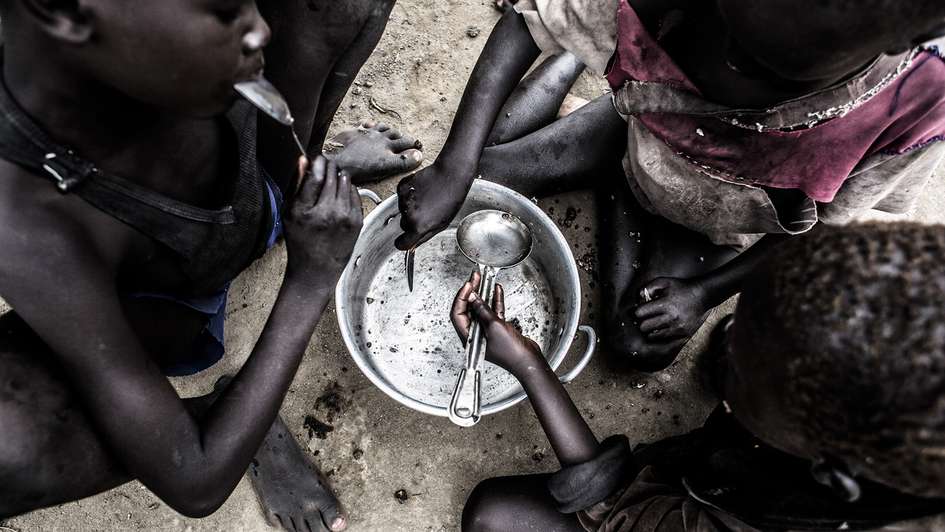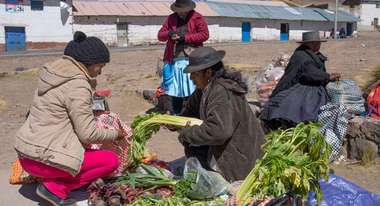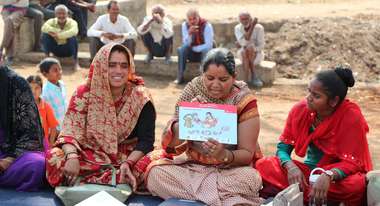Wars and conflicts remain hunger drivers
Conflict is the primary reason for most of the world's cases of acute food insecurity according to the Global Report on Food Crises 2018. Welthungerhilfe demands more money for the poorest countries and to fight climate change to defeat hunger in the long term.

The United Nations presented a new report on global nutrition levels. According to this report, over the last year 124 million people in 51 countries were in acute danger as they could no longer feed themselves. They have been suffering from a hunger crisis. This number is 11 million higher than the figure for 2016. The new United Nations report confirms the experience of Welthungerhilfe, which has shown that wars and conflicts are the most significant driver of hunger worldwide. 74 million people are going hungry around the world due to the effects of armed conflicts.
“In countries such as the Democratic Republic of Congo, Syria, South Sudan and Yemen war is destroying people’s livelihoods, and they cannot survive without international assistance. Unfortunately the prognosis for 2018 is bad. In Afghanistan, the Central African Republic and Myanmar we also fear an increase in hunger levels due to instability. Additionally, new studies from the World Bank show that climate change will lead to around 140 million new refugees over coming years. All these reports show that the federal government must back up its words with action. We need more money for the poorest countries and to fight climate change if we are going to able to defeat hunger in the long term”, says Till Wahnbaeck, Chair of the Executive Board of Welthungerhilfe.
Welthungerhilfe is one of the largest private aid organisations in Germany; politically independent and non-denominational. It is fighting for “Zero Hunger by 2030”. Since it was founded in 1962, more than 8,500 overseas projects in 70 countries have been supported with 3.27 billion euros. Welthungerhilfe works on the principle of empowering people to help themselves: from rapid disaster relief to reconstruction and long-term development cooperation projects with national and international partner organisations.







